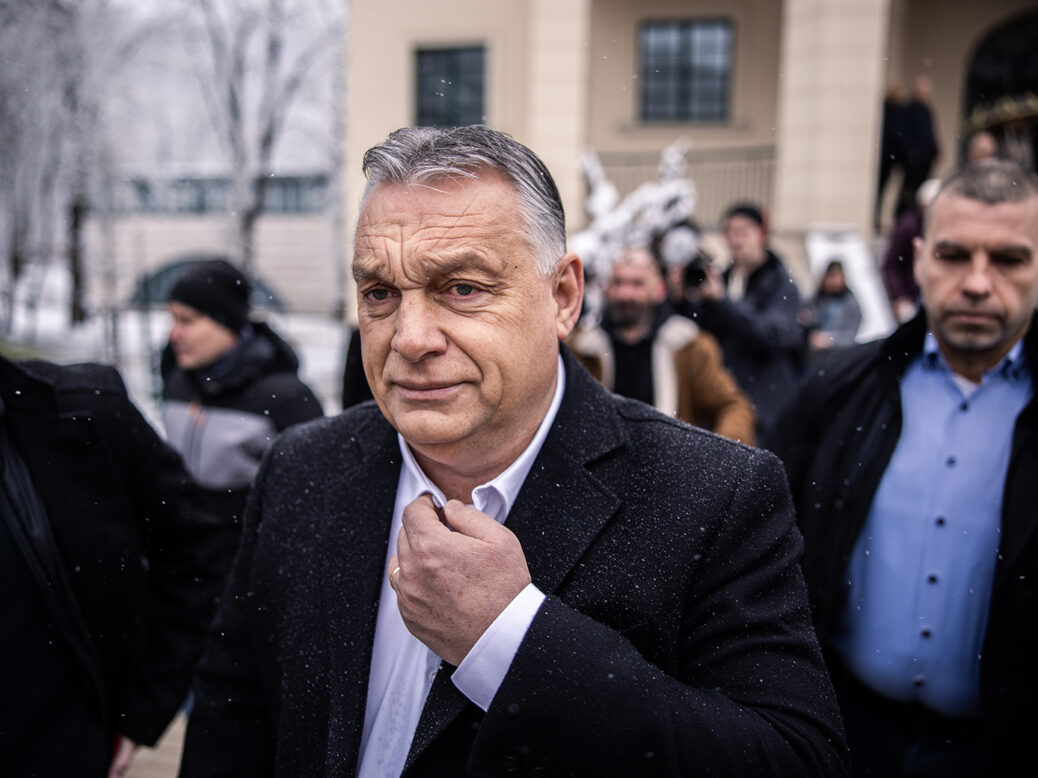
On Sunday (3 April) the European Union’s longest-serving political leader, the Hungarian prime minister Viktor Orbán, won his third re-election since returning to power in 2010. Facing a united opposition for the first time his victory was still larger than before and the extremely disproportionate electoral system gives him yet another constitutional majority. While we could discuss the role of the war in Ukraine, or the effectiveness of the united opposition and its prime ministerial candidate, Péter Márki-Zay, in the end these are distracting details. The most important thing is that, for the third time in a row, the leader of an EU member state was elected in elections that international observers judged not “free and fair”.
To be clear, Hungarians are free to vote, and to vote for whomever they want. Although Hungarians abroad face long lines to vote at embassies, except for those in Romania, who vote solidly for Orbán’s Fidesz party, there is no structural voter suppression, as there is in, for instance, many Republican-controlled states in the US. Similarly, everyone is free to run for office and opposition politicians do not risk being imprisoned or poisoned, as in Vladimir Putin’s Russia. But, like in Russia, all major Hungarian public and private media outlets are tightly controlled by the regime, the electoral system is gerrymandered, electoral offices are under party control and Fidesz is able to campaign all year round with virtually unlimited state resources, while opposition parties are limited by restrictive laws.
[See also: The EU now has to get tough on Hungary’s illiberal Orbán]
This is not to say that Orbán is not popular, or that he would not be popular without such illiberal measures. Rather, it is doubtful that in free and fair elections, with a more proportionate electoral system, he would win a parliamentary majority, let alone such a large one. It is because of his regime’s control of the media, for example, that Orbán’s close ties to Putin did not seem to hurt him on Sunday. While his pro-Putin position has made him a pariah within the EU, where even his illiberal Polish partners the Law and Justice (PiS) party have denounced him, most Hungarian voters have received a steady diet of pro-Russian propaganda from the Hungarian media, arguing that Orbán is protecting Hungarians by keeping the country out of a war supported by the opposition.
So, where does this result leave Hungary and Orbán? For Orbán, and his cronies, holding on to power is no longer just about politics, or even money. It is about freedom. In the past decade, he has transformed Hungary into a kleptocracy, which has made him, his family and his party friends into multimillionaires, but also puts them at risk of imprisonment should they ever face trial before an independent judiciary. It has also made Hungary into an authoritarian regime, more similar to Turkey than Germany. Moreover, the government’s close financial and political ties to both China and Russia have left it increasingly isolated in Europe and beyond, even more so now the whole Western world has come together in a new anti-Putin coalition.
For those outside of Hungary, the more important question is where does this leave the EU? As said, this is the third time that Orbán has been re-elected in unfair elections. The previous two times the EU accepted the result without much discussion. Will it do so again? Probably, particularly if Orbán falls more in line with sanctions on Russia. After all, that seems to be all that matters these days, as one can see from the sudden transformation of Poland, whose international image changed from that of an intolerant nationalist state at the margins of the EU into a model for tolerance standing tall against Russian aggression.
[See also: What would four more years of Orban mean for Hungary?]
Still, as long as Orbán’s Hungary remains a full member of the EU, and one of the most subsidised at that, the whole European project is at risk. After all, the EU is not, or should not be, like Nato, a “hard power” military alliance that has always been willing to work with authoritarian regimes that share its enemies (from Franco’s Spain early on to Recep Tayyip Erdoğan’s Turkey today). The EU is supposed to be a “soft power”, a “community of values”, liberal democratic values to be precise, that seduces rather than enforces. By continuing to facilitate and subsidise Orbán’s authoritarian regime, the EU not only undermines its own practical functionality, as is on full display with regard to Russia, it also weakens its ideological mission.
This article was first published in the Swedish newspaper Aftonbladet.





